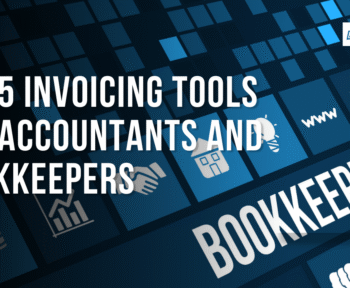As a small business owner, entrepreneur, or even a busy individual, you know that managing finances can be complex. From tax compliance to financial planning, having the right accounting firm by your side can make all the difference. But how do you choose the perfect fit from the myriad of options available? It’s not just about finding someone to file your taxes; it’s about finding a strategic partner.
To ensure you make an informed decision, here are 10 crucial questions to ask before choosing an accounting firm.
1. Qualifications and Industry Experience
This is your starting point. You need to ensure the firm and its key personnel are properly qualified.
What to Ask:
- “What are your qualifications and certifications, and those of your key team members?”
- “Do you have specific experience with businesses in my industry (e.g., tech startups, e-commerce, manufacturing, service-based businesses)?”
- “How many years has your firm been operating?”
Why It Matters:
Qualified professionals bring a deep understanding of accounting principles, tax laws, and financial regulations. Industry-specific experience means they’re familiar with your unique challenges, common pitfalls, and potential deductions or benefits. For instance, in India, a Chartered Accountant (CA) firm signifies a higher level of expertise and regulatory compliance than a general accounting service.
2. Range of Services Offered
Accounting firms offer a range of services from basic bookkeeping to complex financial strategy. You need to know if they can meet your current and future requirements.
What to Ask:
- “What specific accounting services do you offer (e.g., tax preparation, bookkeeping, payroll, financial planning, business advisory, virtual CFO services)?”
- “How do you tailor your services to fit the unique needs of a business like mine?”
- “Can you support me as my business grows and my needs evolve?”
Why It Matters:
A firm that offers a one-size-fits-all approach might not be the right fit. You might need simple tax preparation now, but later require payroll management, financial forecasting, or audit support. A good firm will offer scalable solutions.
3. Staying Updated on Laws and Regulations
Tax laws and financial regulations are constantly changing. Your accounting firm should be proactive in keeping up with the latest amendments.
What to Ask:
- “How do you and your team stay updated on the latest tax laws, accounting standards (like Ind AS/AS in India), and financial regulations?”
- “What professional bodies are you a member of (e.g., ICAI in India, AICPA in the USA)?”
- “How do you communicate important regulatory changes to your clients?”
Why It Matters:
Failing to comply with current tax laws can lead to penalties, fines, and legal issues. A proactive firm will identify new opportunities for tax savings and ensure you remain compliant.
4. Approach to Tax Planning and Strategy
A great accounting firm doesn’t just file your taxes; they help you minimize your tax burden legally and plan for long-term financial health.
What to Ask:
- “What is your philosophy on tax planning and strategy, beyond just annual tax filing?”
- “Do you offer proactive advice throughout the year, or only during tax season?”
- “Can you assist with long-term financial projections, wealth management, or succession planning if applicable?”
Why It Matters:
Strategic tax planning can significantly impact your profitability and cash flow. A forward-thinking firm will help you identify deductions, structure your finances efficiently, and plan for future tax liabilities.
5. Use of Technology and Software
Technology plays a huge role in modern accounting. The firm’s technological savvy can impact efficiency, accuracy, and your ability to access your financial data.
What to Ask:
- “What accounting software platforms do you primarily use or recommend (e.g., Tally, Zoho Books, QuickBooks, Xero)?”
- “Do you use secure client portals for document sharing and communication?”
- “How do you leverage technology to improve efficiency and client collaboration?”
Why It Matters:
Compatibility with your existing systems (or their recommendation for new ones) can streamline data exchange. Cloud-based solutions offer real-time access and better collaboration, which is crucial for modern businesses.
6. Communication Style and Responsiveness
Good communication is essential for any successful professional relationship.
What to Ask:
- “What are your preferred methods of communication (email, phone, video calls, in-person meetings)?”
- “What is your typical response time for client queries?”
- “Will I have a dedicated point of contact at the firm?”
Why It Matters:
You need to know how accessible your accountant will be, especially during critical periods. Unclear communication can lead to misunderstandings, delays, and frustration.
7. Fee Structure and Inclusions
Cost is always a factor, but transparency is key. You need to understand how you’ll be billed and what services are covered.
What to Ask:
- “What is your fee structure (e.g., hourly, flat monthly/annual fee, value-based pricing for specific services)?”
- “What exactly is included in your pricing, and are there any potential additional costs I should be aware of?”
- “Do you offer different service packages to suit various budgets?”
Why It Matters:
Hidden fees or unclear pricing can lead to unexpected costs and strain your budget. Understanding the fee structure helps you plan effectively and avoids unwelcome surprises.
8. Client References and Testimonials
Hearing directly from other clients can provide valuable insights into the firm’s service quality and client satisfaction.
What to Ask:
- “Can you provide references from clients, especially those with businesses similar to mine?”
- “Do you have client testimonials or case studies available?”
Why It Matters:
References offer a third-party perspective on the firm’s reliability, professionalism, and ability to deliver on promises. Checking online reviews on platforms like Google, LinkedIn, or industry-specific directories can also be helpful.
9. Data Security and Confidentiality Measures
Your financial data is highly sensitive. Protecting it should be a top priority for any accounting firm.
What to Ask:
- “What measures do you have in place to ensure the security and confidentiality of my financial data?”
- “Do you use data encryption, secure portals, and regular data backups?”
- “How do you comply with data protection regulations relevant to our location (e.g., IT Act in India, various privacy laws)?”
Why It Matters:
A data breach can have severe consequences, including financial loss, legal liabilities, and irreparable reputational damage. Ensure they have robust security protocols.
10. Contribution to Business Growth and Goals
A good accounting firm is more than just a record-keeper; they should be a strategic partner invested in your success.
What to Ask:
- “Beyond standard accounting, how will you help my business grow and achieve its financial goals?”
- “Do you provide insights or advisory services on cash flow management, profitability analysis, budgeting, or identifying funding opportunities?”
Why It Matters:
They should be able to analyze your financial data to provide actionable insights, identify opportunities for improvement, and help you make informed business decisions. This question helps assess their proactive approach to your business’s future.
Making Your Decision
By asking these 10 comprehensive questions, you’ll gain a thorough understanding of an accounting firm’s capabilities, work culture, and compatibility with your business. Don’t rush the process; take your time to compare responses, check references, and choose a partner who will truly support your financial health and contribute to your growth for years to come. The right accounting firm is an investment that pays dividends for your business’s future.




